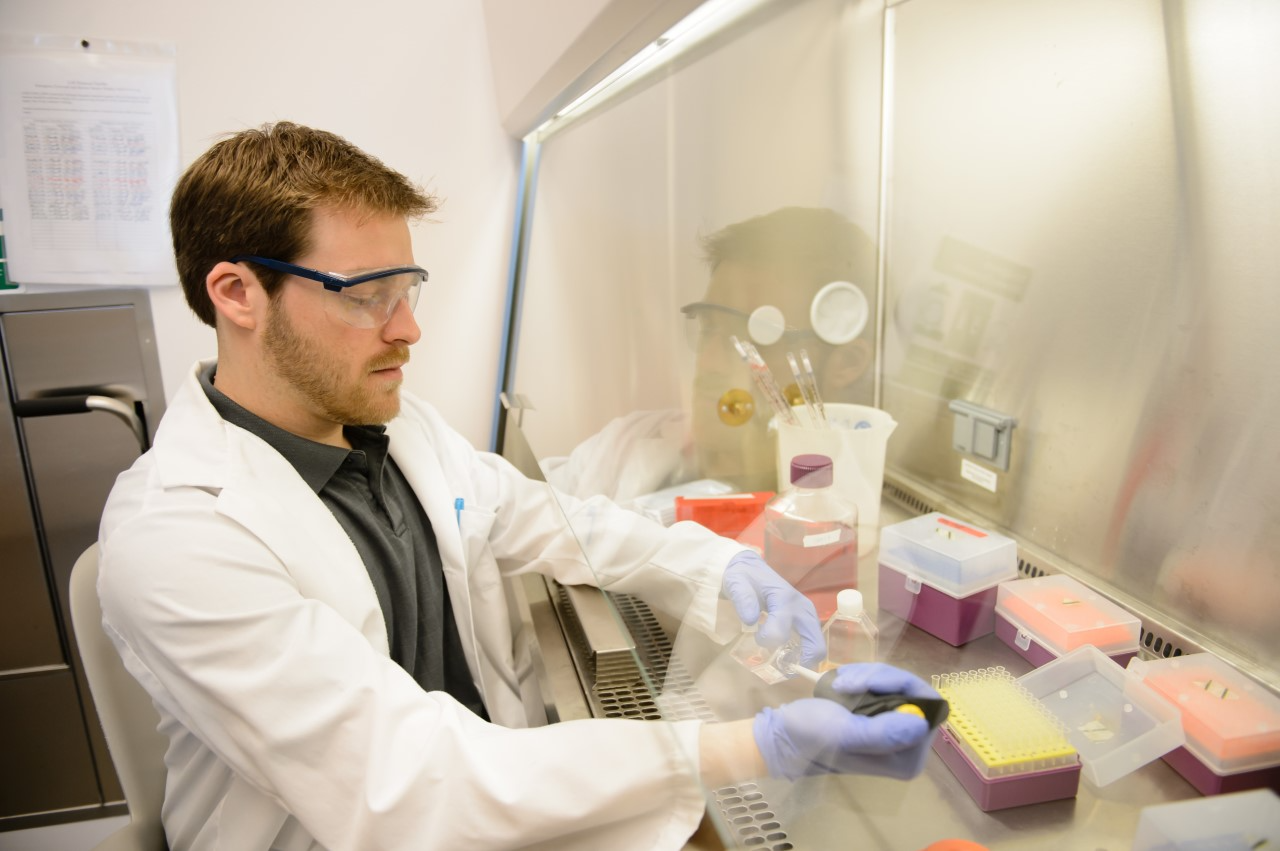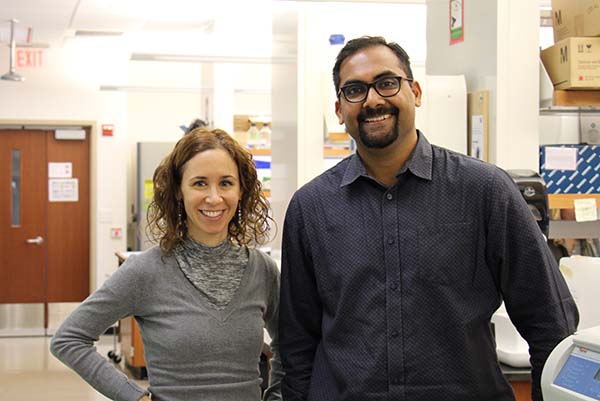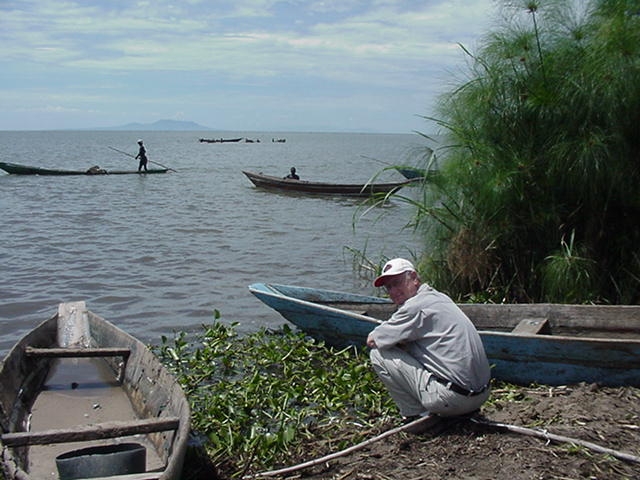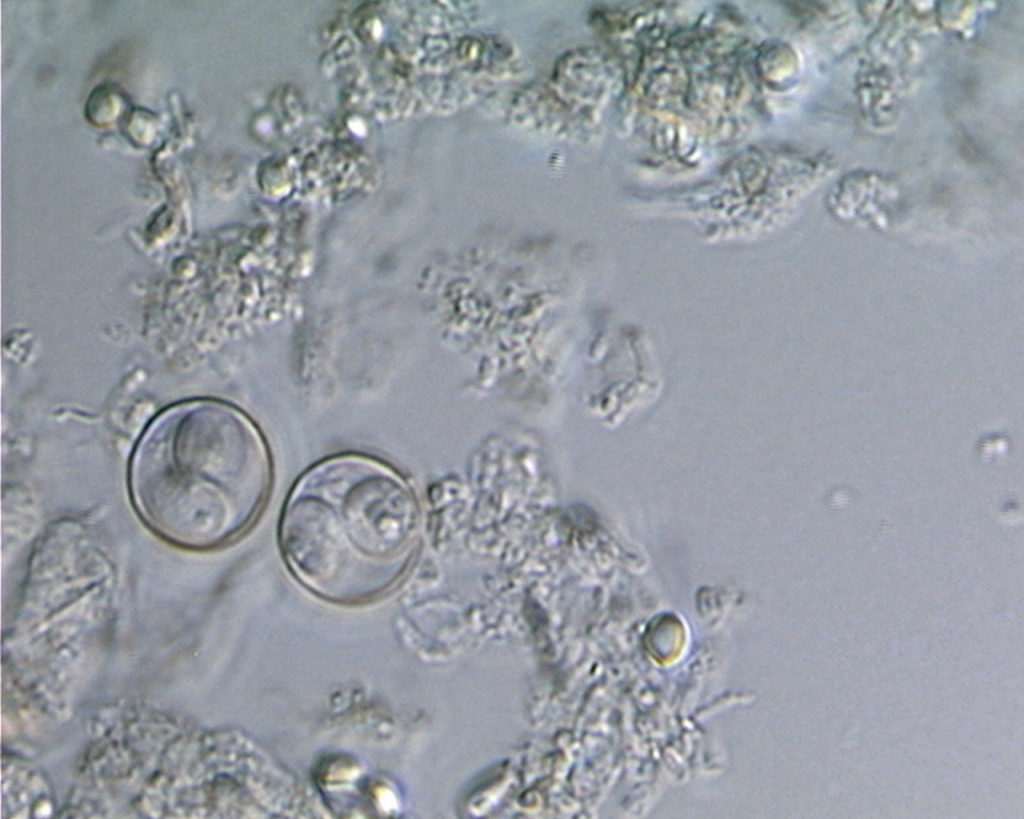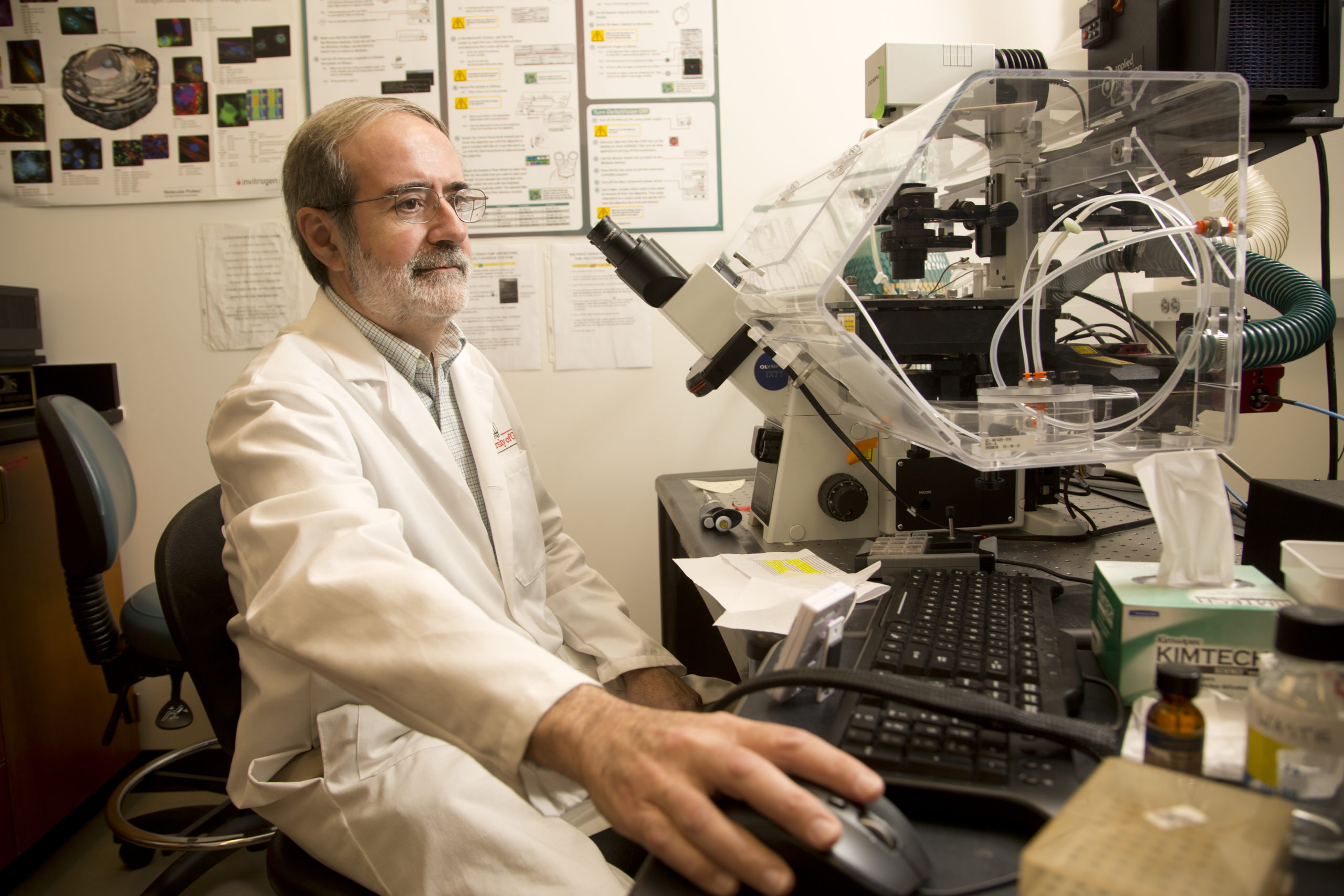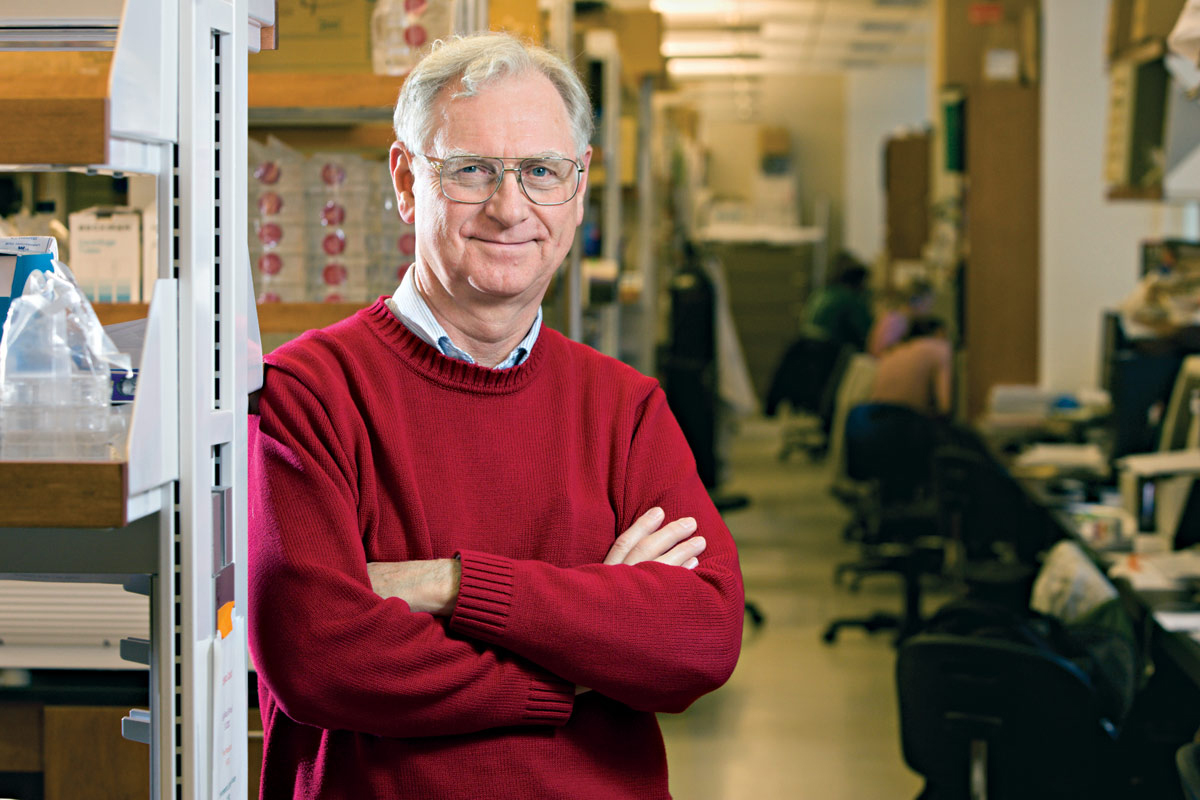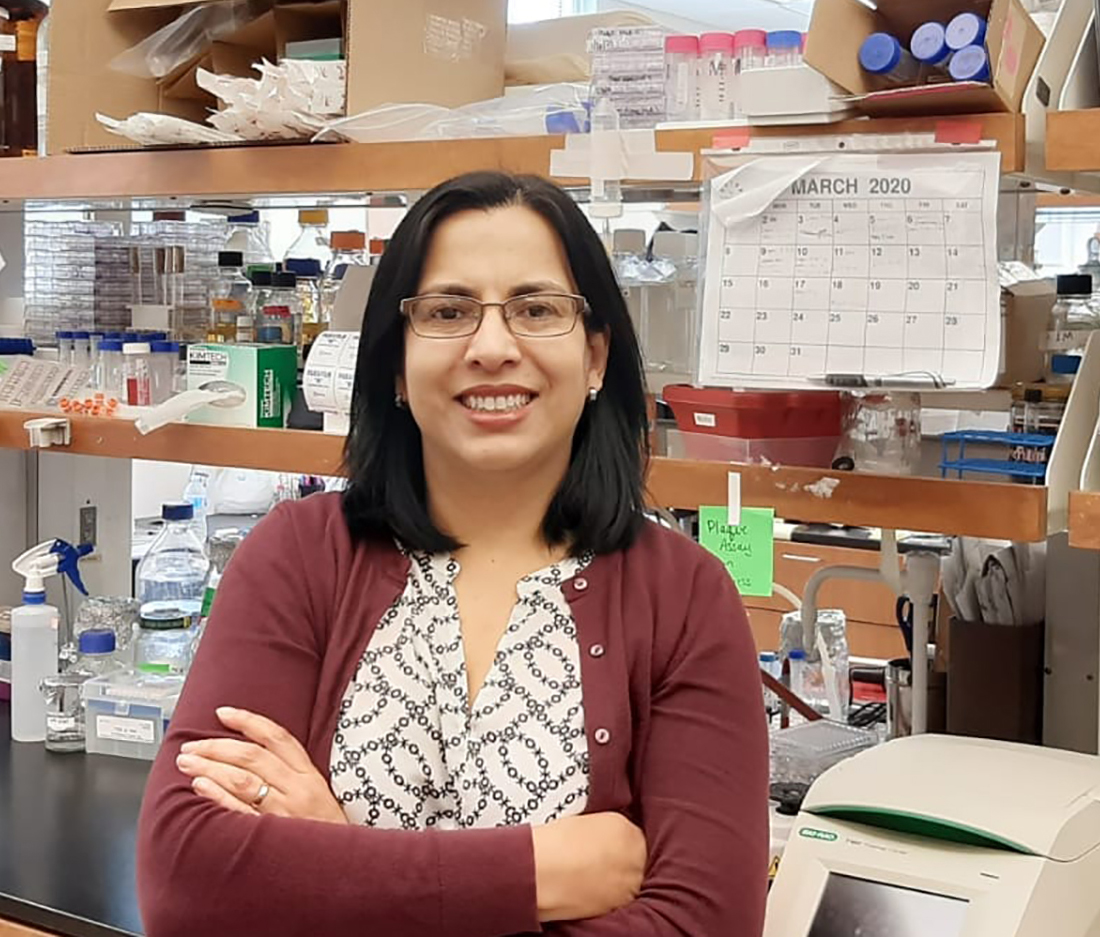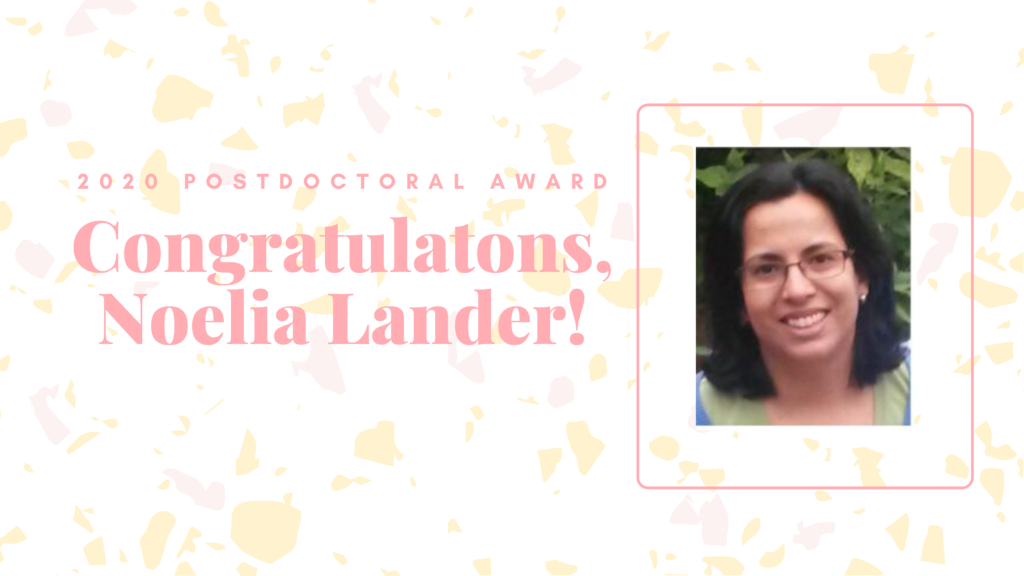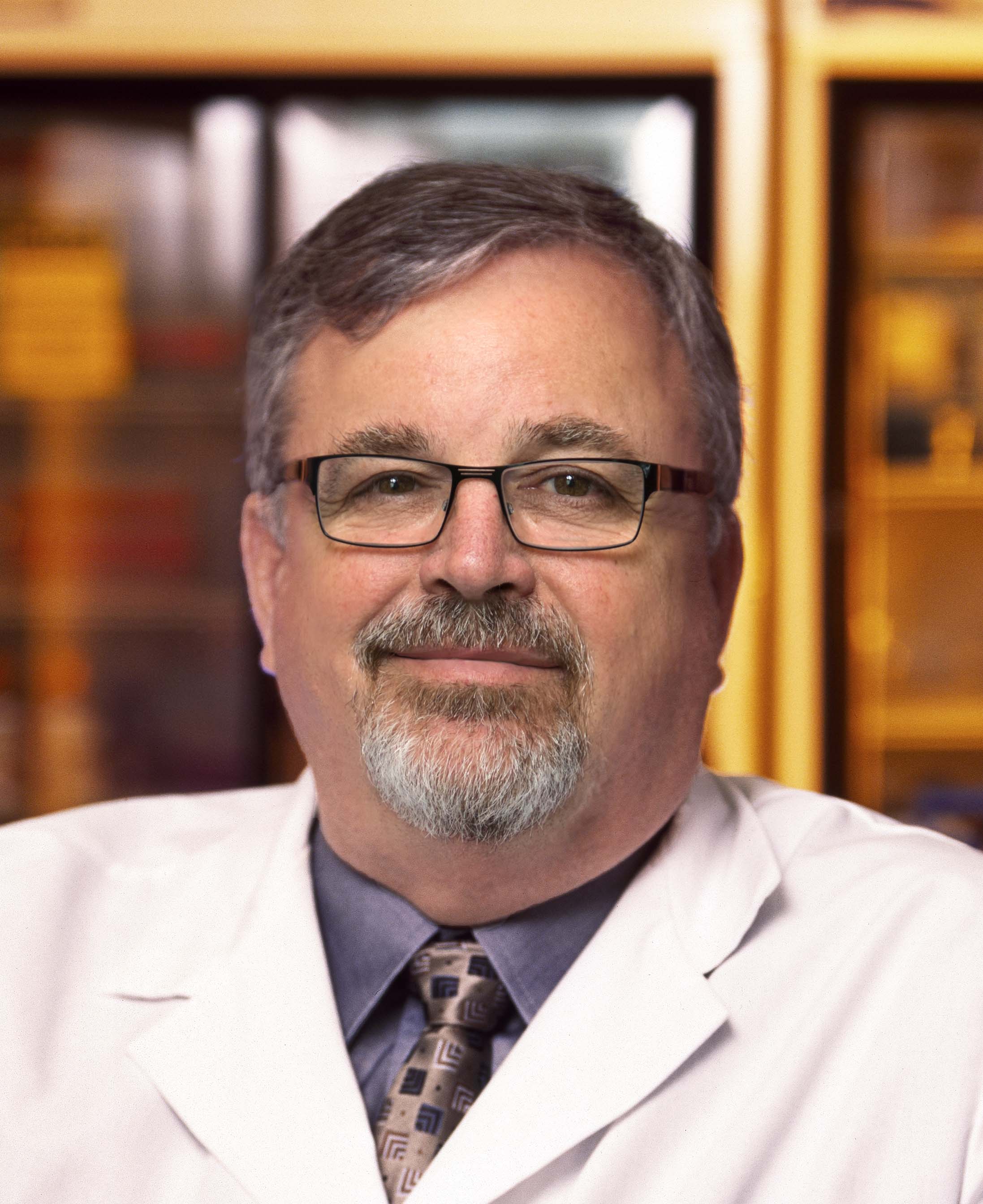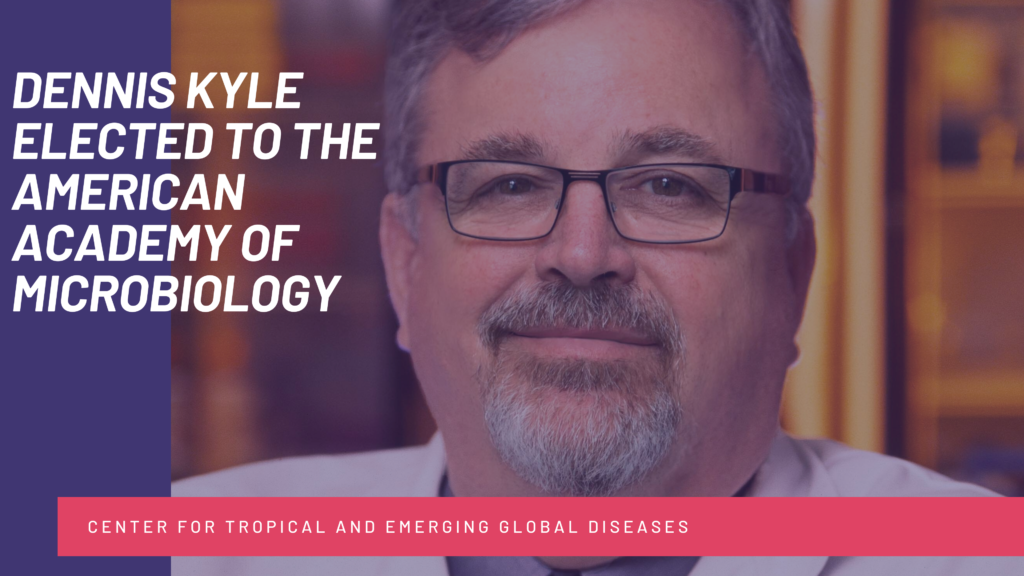May 2020 Newsletter
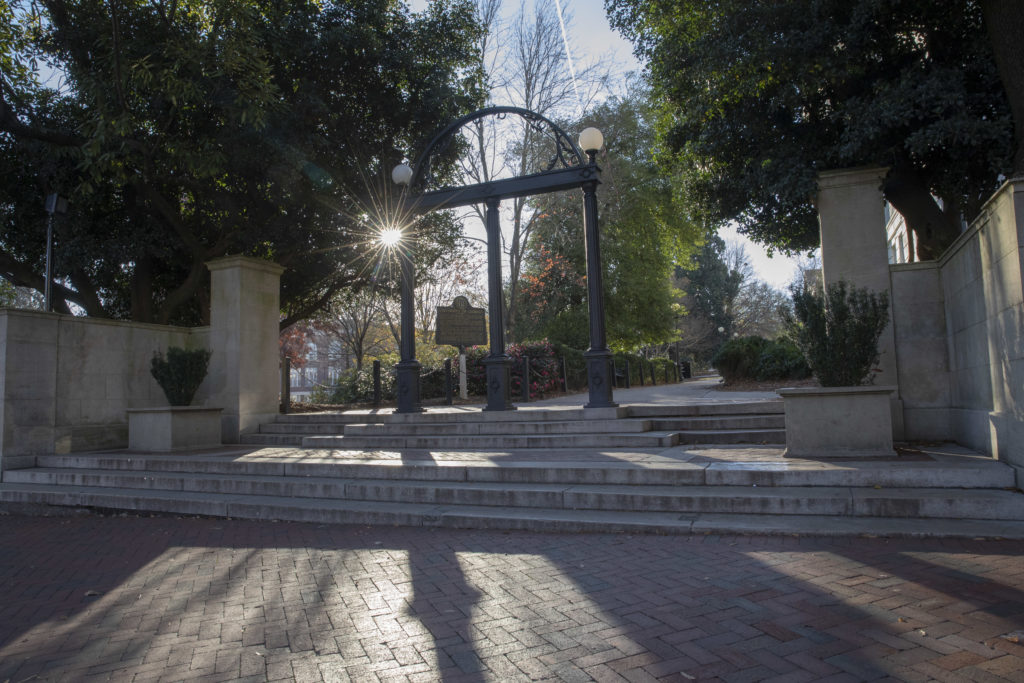
The May CTEGD Newsletter is now available.
In this issue…
Faculty Honors
Trainee Updates
Research news
Grants
Giving Opportunities
CTEGD names travel fund for Daniel G. Colley
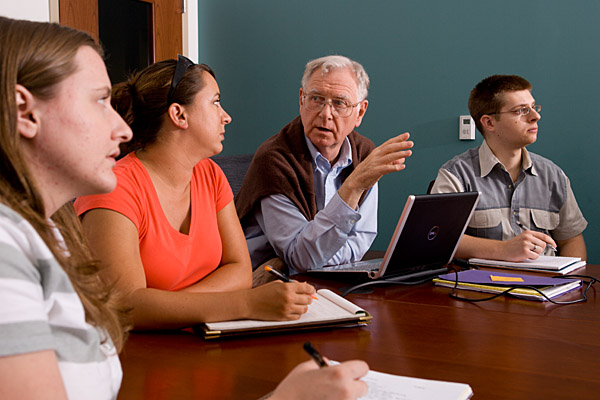
One day Daniel Colley raised his hand to volunteer, setting in motion five decades of scientific adventures. It was 1969, and Colley’s postdoctoral adviser, ByronWaksman, a renowned immunologist at Yale University School of Medicine, had stepped into the laboratory and asked if anyone wanted to go to Brazil. Colley, today a UGA immunologist and Fellow of the American Association for the Advancement of Science, became fascinated by schistosomiasis, a parasitic worm infection plaguing poverty-stricken communities in sub-Saharan Africa and around the world.
After his Brazil sojourn, Colley arrived at Vanderbilt University in 1971 to begin setting up a lab and a career-long effort to understand the immunological paradox of schistosomiasis. In 1992, he joined the Centers for Disease Control and Prevention (CDC) and a year later was promoted to director of the Division of Parasitic Diseases. After retiring from the CDC, he arrived at UGA in 2001 as professor of microbiology and director of the Center for Tropical and Emerging Global Diseases. During the past decade, Colley has been director of UGA’s Schistosomiasis Consortium for Operational Research and Evaluation (SCORE). In June 2020, Colley retired from the University of Georgia. He has been named Professor Emeritus.
That trip to Brazil was instrumental in shaping Colley’s career. As a mentor, he is passionate about providing the same opportunity to new scientists. Early in his career at UGA, he established the Training Innovations in Parasitological Studies (TIPS) fellowship through funding from the Ellison Medical Foundation, funding that has since ended. In honor of Colley’s commitment to understanding diseases of poverty and training the next generation of scientists, the Center for Tropical and Emerging Global Diseases is establishing the Daniel G. Colley Training in Parasitology Fund to continue his legacy.
[button size=’large’ style=” text=’Give Now’ icon=” icon_color=’BA0C2F’ link=’https://gail.uga.edu/giving/as/daniel-colley-fund’ target=’_self’ color=” hover_color=” border_color=” hover_border_color=” background_color=” hover_background_color=” font_style=” font_weight=” text_align=’center’ margin=”]
Related news: Professor Emeritus Dan Colley to discuss 50 years of Schistosoma research
Ynes Ortega receives grant to study Cyclospora presence in the U.S.
Historically, Cyclospora infection in the United States has been associated with imported fresh produce. However, in 2018, the U.S. saw two significant outbreaks associated with vegetables grown in the United States.
“We had more than 2,000 non-travel associates cyclosporiasis cases,” said Ynes Ortega, member of the Center for Tropical and Emerging Global Diseases and associate professor in the Department of Food Science and Technology’s Center for Food Safety.
Fresh produce vegetable trays containing broccoli, cauliflower, carrots, and dill dip, which are not often associated with Cyclospora outbreaks, were implicated in the first outbreak affecting 250 people and lettuce from a salad mix used by a fast food chain was the source of the second outbreak with 511 cases.
“Cyclospora has previously been detected in salad greens produced in the US and lettuce implicated in the second outbreak was produced in the U.S.,” said Ortega. “Clearly, we need to determine if Cyclospora is not only a parasite present in other countries but also in the U.S.”
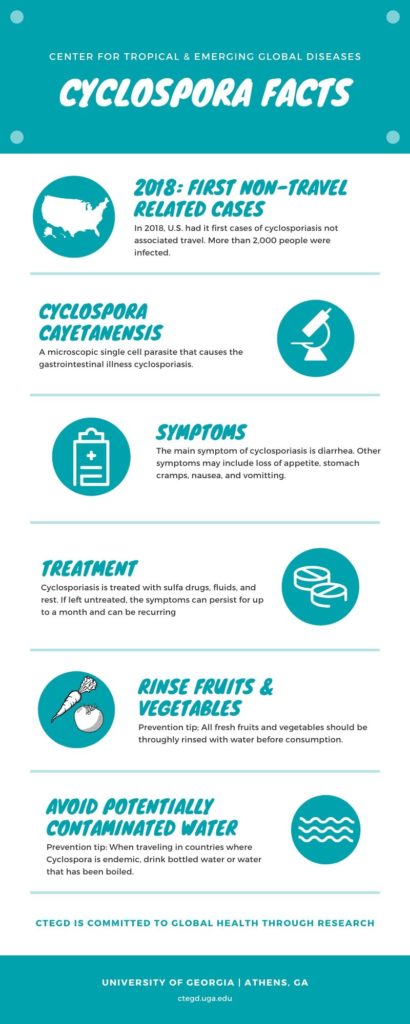 Cyclospora cayetanensis, the single-cell parasite that causes cyclosporiasis, was first described by Ortega in the 1990s. A person becomes infected with the parasite by consuming contaminated food, mostly fresh fruits and vegetables, and water. Infection results in gastrointestinal illness characterized primarily by diarrhea. Cyclosporiasis is treated with sulfa drugs, fluids, and rest. If left untreated, the symptoms can persist for up to a month and can be recurring. Prevention of infection is accomplished by frequent hand washing by those who process fruits and vegetables, thoroughly rinsing fruits and vegetables with water prior to consumption, and avoiding potentially contaminated water while traveling in countries where C. cayetanensis is endemic.
Cyclospora cayetanensis, the single-cell parasite that causes cyclosporiasis, was first described by Ortega in the 1990s. A person becomes infected with the parasite by consuming contaminated food, mostly fresh fruits and vegetables, and water. Infection results in gastrointestinal illness characterized primarily by diarrhea. Cyclosporiasis is treated with sulfa drugs, fluids, and rest. If left untreated, the symptoms can persist for up to a month and can be recurring. Prevention of infection is accomplished by frequent hand washing by those who process fruits and vegetables, thoroughly rinsing fruits and vegetables with water prior to consumption, and avoiding potentially contaminated water while traveling in countries where C. cayetanensis is endemic.
Ortega has been awarded a 2-year grant from the Center for Produce Safety, a non-profit organization committed to addressing issues faced by the produce industry, to investigate C. cayetanensis presence in the United States.
“We will be testing surface water for the presence of Cyclospora cayetanensis, improving sample collection methods, and genotyping of the parasite,” said Ortega.
Up until 2018, it was believed that Cyclospora was not present in the United States. Therefore, one of the main goals of this grant is to determine how widely distributed this parasite is within the United States. To aid in this determination, a simpler and more sensitive method of detection is needed which Ortega’s laboratory is already working on.
“These two objectives are critical to implement monitoring and intervention strategies not only in the U.S. but also in endemic locations, with the ultimate goal of reducing the number of domestic cases of cyclosporiasis,” said Ortega.
UGA researchers join team of 100+ scientists to develop genetic tools for marine protists
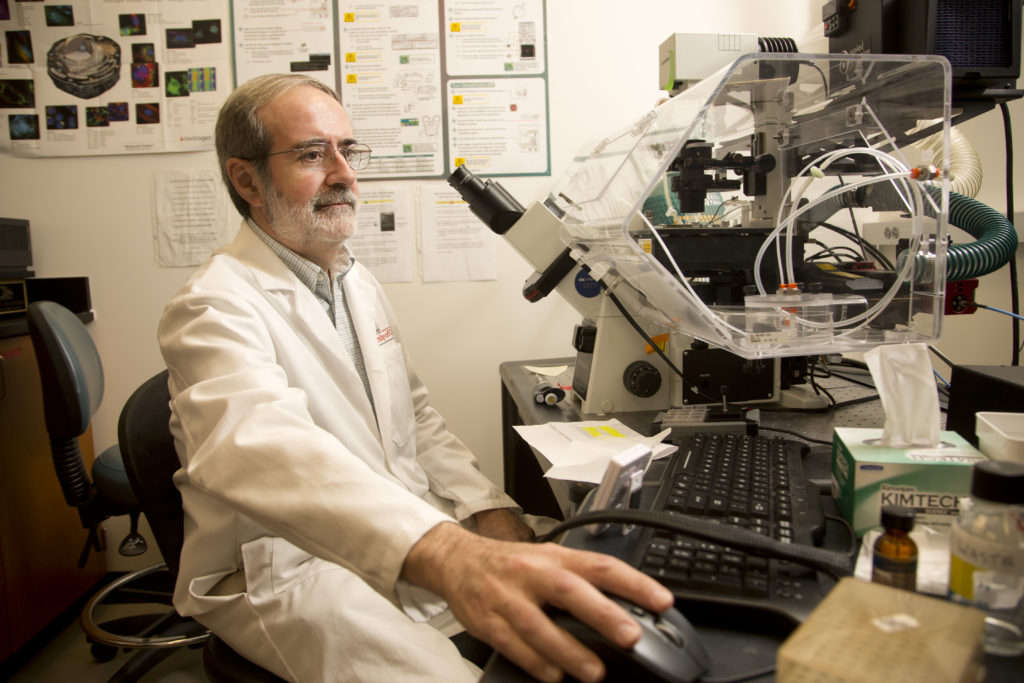
Roberto Docampo and colleagues at the University of Georgia’s Center for Tropical and Emerging Global Diseases have joined with 53 other lab groups to develop tools to genetically manipulate marine protists, a microscopic single-cell organism that plays an important ecological role in marine ecosystems. Their results were recently published in Nature Methods.
Protists aid in sequestering carbon dioxide, serve as a food source for many organisms (including humans), and cause the toxic red tides that have plagued Florida beaches in recent years. However, little is known about their cellular biology or evolutionary history, and no model organisms exist for this group. Protists are a highly diverse collection of species, and the inability to genetically modify a large majority of them has been a major hurdle to their study. A few protists, such as some parasitic protists which have an impact on human or animal health, have protocols, but they are not highly representative of the broader kingdom.
Funded by a $8 million grant from the Gordon and Betty Moore Foundation, researchers for the first time were able to develop protocols for transfection, or the introduction of foreign DNA, and gene expression in 13 species. They were also able to build on the tools already developed for eight other species. While they could not develop a universal protocol for genetic transfection for all protists due to their vast diversity, they were able to provide what the researchers are calling a synthetic “Transformation Roadmap.”
Docampo collaborated with Virginia Edgcomb and her lab at the Woods Hole Oceanographic Institute to develop genetic tools that would allow successful transfection of genes into Bodo saltans.
Bodo saltans is a unicellular organism found in marine and freshwater habitats. It belongs in the Discoba group which also includes the clinically significant parasitic protists Trypanosoma cruzi, Trypanosoma brucei, and Leishmania . Docampo and his team of researchers have been at the forefront of developing the genetic modification tool CRISPR/Cas9 for Trypanosoma cruzi, the causative agent of Chagas Disease.
“The development of tools to genetically modify [B. saltans] will be essential for the study of its biology and for the understanding of the evolution of the adaptions of trypanosomatids to parasitism,” said Docampo, Barbara and Sanford Orkin – GRA Eminent Scholar in Emerging Diseases and Cellular and professor in the Franklin College of Arts and Sciences department of cellular biology.
B. saltans, like the other protists in this study, will serve as a model organism for related protists that may be difficult to culture in the laboratory or in which protocols are unsuccessful. This study is not only a step toward closing the knowledge gap in the biology and evolution of this diverse kingdom of organisms but will also aid in the advancement of protisan biotechnology. Marine protists are an untapped resource and their study could reveal mechanisms and drug therapies to treat human and animal diseases.
The study is available online: Faktorová, D., Nisbet, R.E.R., Fernández Robledo, J.A. et al. Genetic tool development in marine protists: emerging model organisms for experimental cell biology. Nat Methods (2020). https://doi.org/10.1038/s41592-020-0796-x
Global Schistosomiasis Alliance pays tribute to Dan Colley
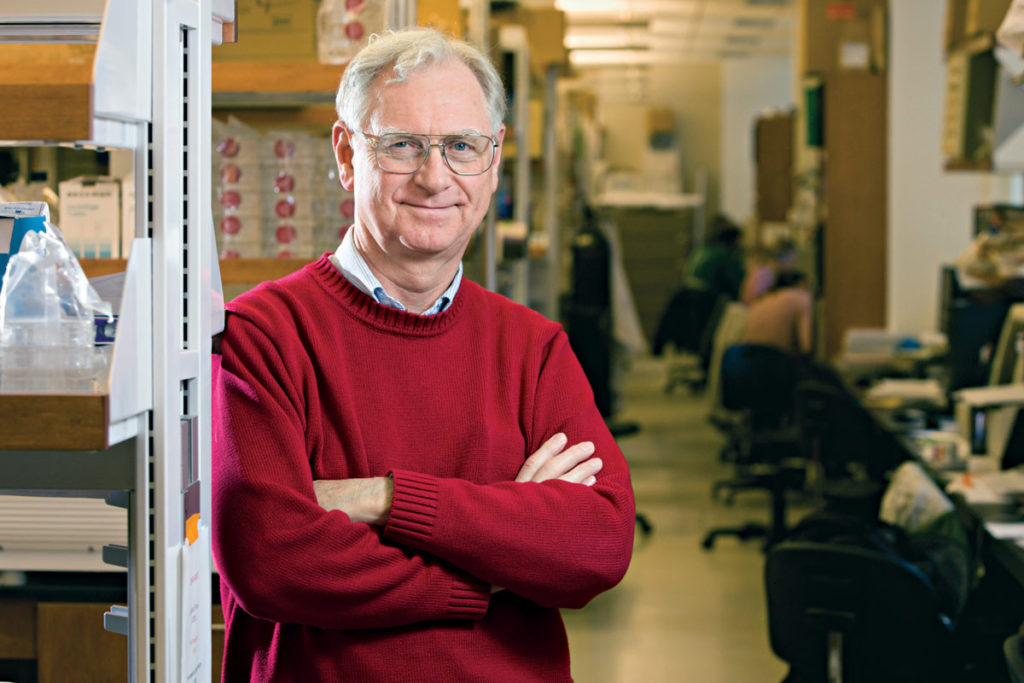
Dr. Daniel G. Colley, Director of the Schistosomiasis Consortium for Operational Research and Evaluation (SCORE), will be retiring from his position as Professor at the University of Georgia on June 30, 2020. He will continue as a Professor Emeritus. The Global Schistosomiasis Alliance has posted a tribute, including one of Dan’s famous poems, on their website.
Noelia Lander receives research award
Noelia Lander, a cellular biologist and postdoctoral researcher in Roberto Docampo‘s laboratory, has received the 2020 Postdoctoral Award from the UGA Research Foundation.
Lander has used her research to advance understanding of a dangerous parasite affecting millions of people worldwide. She adapted the CRISPR/Cas9 genome-editing system for the study of Trypanosoma cruzi, a human parasite that causes Chagas disease. In widely cited research, she proved the usefulness of this new gene-editing system and its range of applications in T. cruzi, which historically had been difficult to manipulate. Dozens of Chagas molecular biology labs worldwide use her CRISPR/Cas9 strategy to study the parasite’s proteins, characterize its metabolic pathways, understand its biology and search for new chemotherapeutic targets. More recently, she has used her system to study protein function and calcium signaling in T. cruzi. She has trained laboratory personnel and students in scientific research and is currently conducting the mentored phase of an NIH Pathway to Independence Award.
Created in 2011, Postdoctoral Research Awards recognize the remarkable contributions of postdoctoral research scholars to the UGA research enterprise. The UGA Research Foundation funds up to two awards a year to current scholars.
Dennis Kyle elected as American Academy of Microbiology Fellow
University of Georgia researcher Dennis Kyle has been elected as a 2020 fellow by the American Academy of Microbiology. He joins a class of 68 new fellows this year.
Kyle is a GRA Eminent Scholar in antiparasitic drug discovery, with appointments in the departments of cellular biology and infectious diseases.
“Election as a Fellow of the American Academy of Microbiology is a tremendous honor and one that was achieved by the success of all the great people I’ve work with over the years on antiparasitic drug discovery,” said Kyle, who joined UGA in 2017 as the director of the Center for Tropical and Emerging Global Diseases.
His research focuses on the discovery, development, and mechanisms of resistance to antiparasitic drugs. Currently, his laboratory is concentrating on malaria, which has become increasingly resistant to current treatments, and the brain-eating amoeba Naegleria fowleri. The Kyle laboratory has been instrumental in developing methods and tests to discover new drugs that act rapidly, effectively and can be combined with existing drugs used to treat these nearly incurable diseases.
Kyle’s work is largely funded by the National Institutes of Health, Medicines for Malaria Venture and a $9.4 million grant from the Bill & Melinda Gates Foundation. He has published more than 200 research papers, and his findings have been cited more than 14,000 times.
Kyle has received a number of awards over the course of his career, including the U.S. Army Achievement Medal in 1990, the U.S. Army Commendation Medal in 1988, and the U.S. Army Meritorious Service Award. He has been honored by the Southeastern Society of Parasitologists and is a fellow of the American Society for Tropical Medicine and Hygiene and the American Association for the Advancement of Science. In 2006, he was named Scientist of the Year by Malaria Foundation International.
Kyle joins more than 2,500 AAM fellows who are elected through a highly selective, peer-review process, based on their records of scientific achievement and original contributions that have advanced microbiology. Only 58 percent of this year’s nominees were elected to the Class of 2020, and the newly elected fellows hail from 11 different countries.

